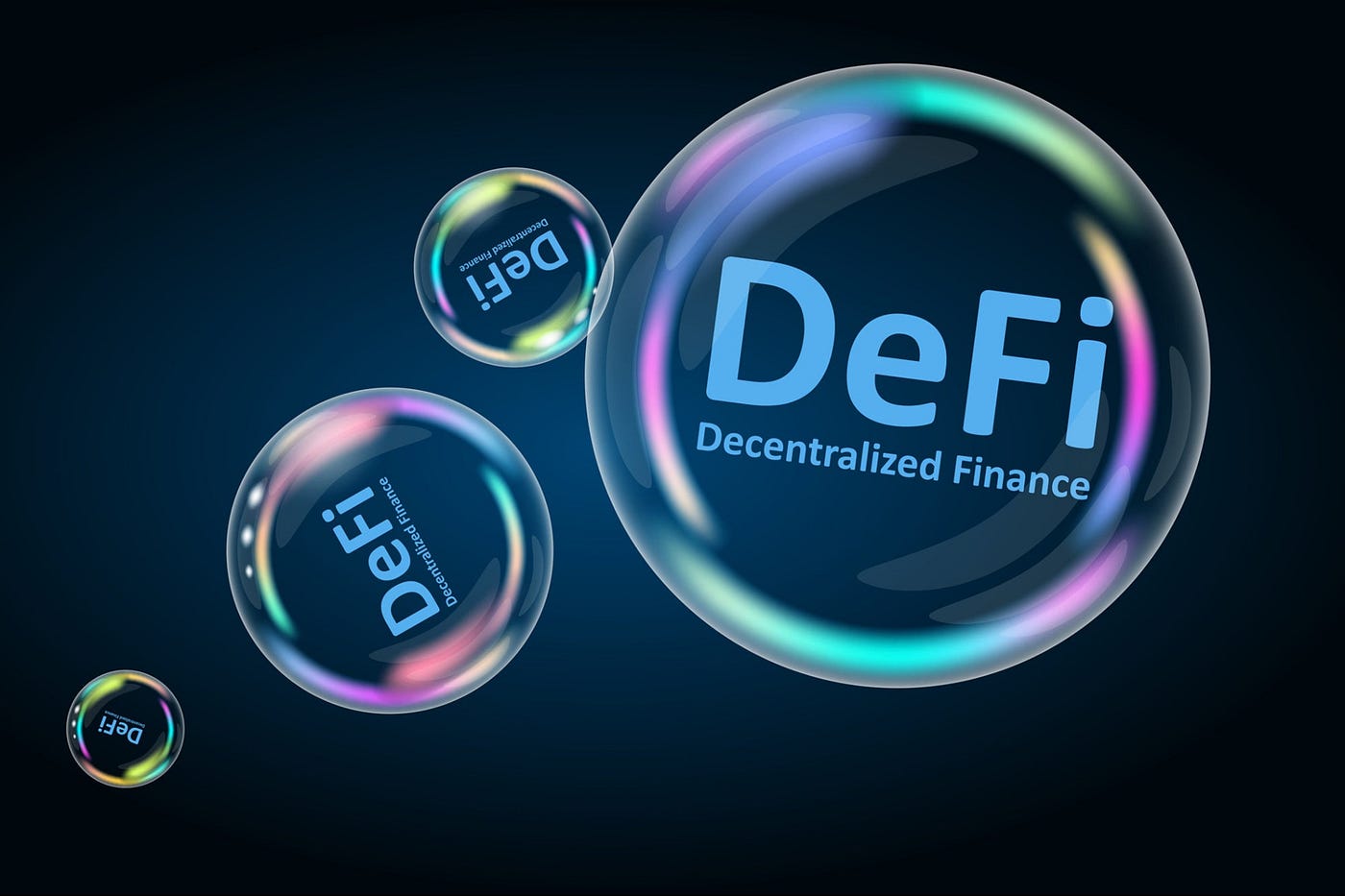What are Play-to-Earn NFT Games and How Do They Work?
As
we step into 2024, the landscape of the Cryptocurrency Business undergoes dynamic shifts, presenting a compelling need to keep a vigilant eye on emerging trends and developments. The cryptocurrency market, known for its rapid evolution, continues to redefine traditional financial paradigms, making it crucial for businesses to adapt and innovate. From the rise of novel decentralized finance (DeFi) solutions to the integration of blockchain technology in mainstream industries, the opportunities and challenges are manifold. Navigating this complex terrain requires a keen awareness of market dynamics, regulatory changes, and technological advancements. This exploration of Cryptocurrency Business Trends in 2024 and Beyond promises insights that are instrumental for businesses aiming to thrive in the ever-evolving digital financial ecosystem.
Navigating this complex terrain requires a keen awareness of market dynamics, regulatory changes, and technological advancements. This exploration of Cryptocurrency Business Trends in 2024 and Beyond promises insights that are instrumental for businesses aiming to thrive in the ever-evolving digital financial ecosystem.
The applications of blockchain technology extend from optimizing supply chain management to the utilization of cryptocurrency for facilitating cross-border transactions, offering limitless possibilities for businesses. Let’s delve into the primary cryptocurrency trends anticipated in 2024 and beyond.
Crypto Trends in Business
💎 Increased adoption of stablecoins
 Stablecoins have witnessed a surge in popularity as a form of cryptocurrency in recent times, thanks to their distinctive features. In contrast to other cryptocurrencies like Bitcoin or Ethereum, stablecoins are tethered to a stable asset, typically a fiat currency such as the US dollar or a tangible commodity like gold. This unique characteristic ensures that stablecoins provide the reliability associated with traditional currencies, mitigating the volatility seen in other forms of cryptocurrency.
Stablecoins have witnessed a surge in popularity as a form of cryptocurrency in recent times, thanks to their distinctive features. In contrast to other cryptocurrencies like Bitcoin or Ethereum, stablecoins are tethered to a stable asset, typically a fiat currency such as the US dollar or a tangible commodity like gold. This unique characteristic ensures that stablecoins provide the reliability associated with traditional currencies, mitigating the volatility seen in other forms of cryptocurrency.
Anticipate a rise in the adoption of stablecoins in 2024, especially in emerging markets where conventional currencies often exhibit volatility and unreliability. The appeal of stablecoins lies in their ability to offer individuals and businesses a means to transact in a stable currency without the necessity of a conventional bank account or access to a stable currency.
Furthermore, stablecoins bring advantages such as swift transaction speeds, minimal transaction fees, and heightened transparency, making them an enticing choice for both businesses and individuals. Their utility extends to applications like remittances, and international trade, and serves as a store of value.
In essence, the growing adoption of stablecoins is poised to exert a substantial influence on the cryptocurrency and financial sectors in the forthcoming years, especially in regions where stable currencies are scarce. With the emergence and traction of more stablecoin initiatives, we can anticipate increased innovation in this domain, leading to novel use cases and applications for stablecoins. This represents a substantial trend in the realm of business and cryptocurrency that is set to evolve significantly.
💎 NFTs will continue to gain popularity Non-Fungible Tokens (NFTs) made a powerful entrance onto the global stage in 2022 and 2023, and their popularity is poised for further escalation in 2024. Functioning as distinctive digital assets stored on a blockchain, NFTs are crafted to signify ownership or authenticate specific digital assets, ranging from artwork and music to collectibles.
Non-Fungible Tokens (NFTs) made a powerful entrance onto the global stage in 2022 and 2023, and their popularity is poised for further escalation in 2024. Functioning as distinctive digital assets stored on a blockchain, NFTs are crafted to signify ownership or authenticate specific digital assets, ranging from artwork and music to collectibles.
With a growing number of creators and collectors recognizing the potential inherent in this technology, the trajectory suggests continued expansion and heightened popularity for NFTs. They present creators with a means to monetize their digital creations, a task that was previously challenging due to the ease of copying and sharing digital content.
Furthermore, NFTs introduce collectors to a fresh approach to investing in digital assets, cultivating a market for rare and unique digital items. This surge in demand for NFTs has resulted in high-profile sales fetching millions of dollars.
As the technology underpinning NFTs matures, expect to witness the emergence of new use cases, including integration into gaming and virtual reality, as well as applications in ticketing and other forms of access control.
In summary, the ongoing expansion and popularity of NFTs are poised to wield a significant impact on the art, music, and collectibles industries, as well as the broader cryptocurrency landscape. With increasing adoption by creators and collectors, anticipate the unveiling of novel forms of digital expression and innovation.
💎 DeFi will continue to grow Decentralized Finance (DeFi) has emerged as one of the most dynamic and swiftly advancing trends in the cryptocurrency domain. DeFi protocols empower users to access a broad spectrum of financial services, encompassing borrowing, lending, and trading, all without the reliance on intermediaries like banks. Leveraging blockchain technology and smart contracts, DeFi platforms operate in a decentralized, secure, and transparent manner.
Decentralized Finance (DeFi) has emerged as one of the most dynamic and swiftly advancing trends in the cryptocurrency domain. DeFi protocols empower users to access a broad spectrum of financial services, encompassing borrowing, lending, and trading, all without the reliance on intermediaries like banks. Leveraging blockchain technology and smart contracts, DeFi platforms operate in a decentralized, secure, and transparent manner.
The DeFi space is poised for sustained expansion with the introduction of new protocols and platforms. This growth is propelled by various factors, including the heightened awareness and comprehension of DeFi among the general public. Additionally, the increasing influx of businesses into the cryptocurrency sector and the continual development of advanced features and functionality in new DeFi protocols contribute to this momentum.
A pivotal advantage of DeFi lies in its creation of a more open, accessible, and democratized financial system. Eliminating the necessity for intermediaries allows individuals with an internet connection to access financial services previously limited to a select few. This potential transformation holds the promise of reshaping our understanding of finance and establishing a more fair and inclusive financial system.
Furthermore, DeFi platforms furnish users with a remarkable degree of flexibility and customization, enabling them to tailor financial services to their specific needs and preferences. This flexibility is particularly crucial in emerging markets where traditional financial infrastructure may be limited or absent.
💎 Privacy Coins Privacy coins represent a category of cryptocurrencies designed to provide heightened privacy and anonymity features, making it challenging for anyone to trace users’ identities or the number of transactions conducted. Notable examples of privacy coins include Monero, Zcash, and Dash. These coins leverage sophisticated encryption techniques to obscure transaction details, ensuring they remain resistant to easy tracing or monitoring.
Privacy coins represent a category of cryptocurrencies designed to provide heightened privacy and anonymity features, making it challenging for anyone to trace users’ identities or the number of transactions conducted. Notable examples of privacy coins include Monero, Zcash, and Dash. These coins leverage sophisticated encryption techniques to obscure transaction details, ensuring they remain resistant to easy tracing or monitoring.
The applications of privacy coins in the business realm are diverse, including the safeguarding of sensitive financial data and ensuring the confidentiality of business transactions. Another potential application lies in fortifying defenses against data breaches and cyber-attacks. With the escalating frequency of high-profile data breaches and cyber assaults, where hackers pilfer sensitive customer data from businesses, the utilization of privacy coins becomes a strategic move for businesses to enhance data security and safeguard customer privacy. This strategic adoption is anticipated to be a prominent crypto trend in business in 2024.
As the adoption of cryptocurrencies and blockchain technology continues its upward trajectory, businesses are compelled to embrace new measures to counter cyber threats and uphold customer privacy. Privacy coins emerge as an effective solution for businesses seeking to fortify the security of their financial transactions and shield sensitive data from unauthorized access.











![[ℕ𝕖𝕧𝕖𝕣] 𝕊𝕖𝕝𝕝 𝕐𝕠𝕦𝕣 𝔹𝕚𝕥𝕔𝕠𝕚𝕟 - I Think I Have Crypto PTSD](https://cdn.bulbapp.io/frontend/images/819e7cdb-b6d8-4508-8a8d-7f1106719ecd/1)

































